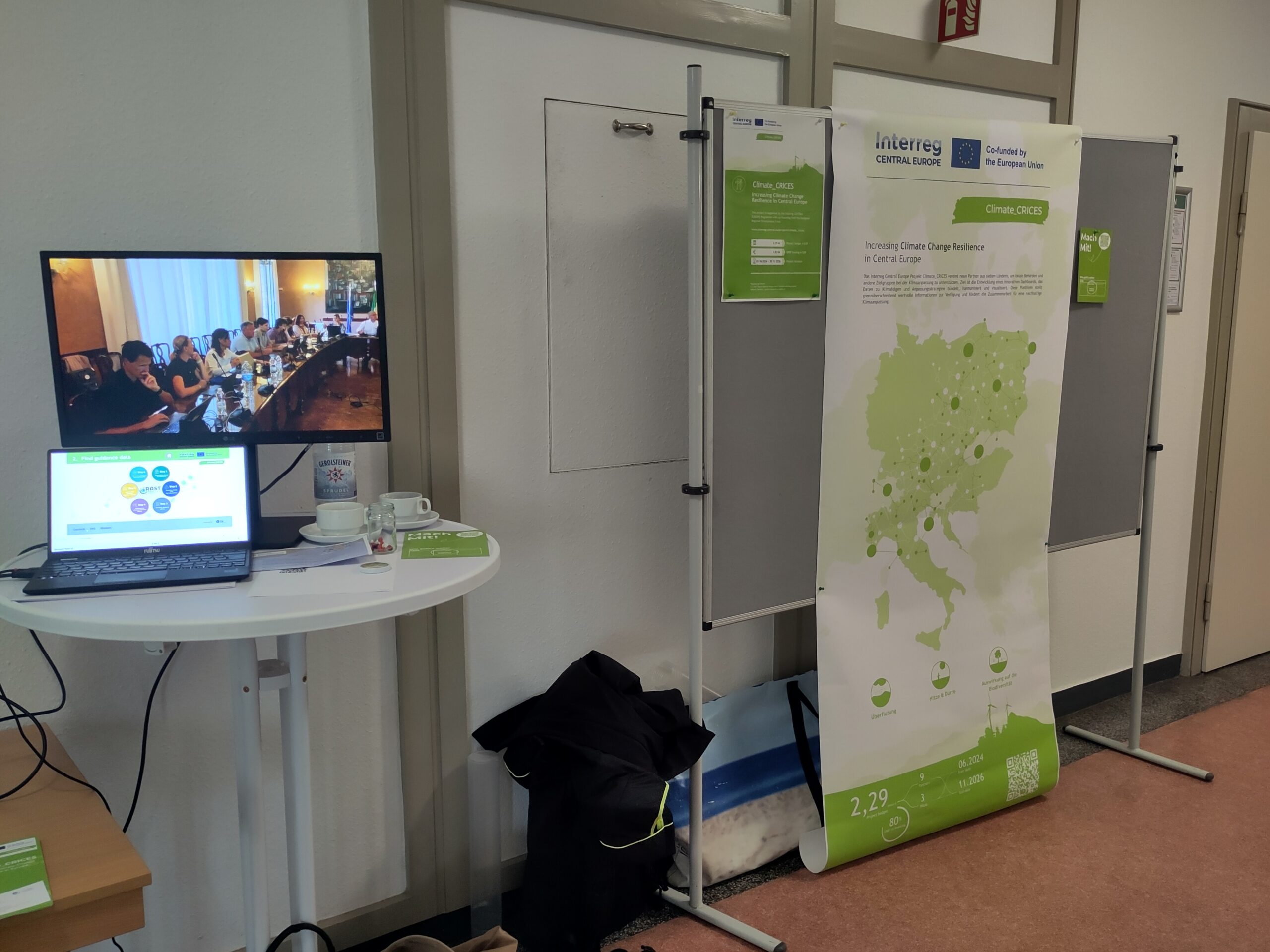Pillnitz, Germany, 1 October 2025 – The Climate_CRICES project, represented by the Leibniz Institute of Ecological Urban and Regional Development (IOER), participated in the Statuskolloquium on Climate Change Adaptation hosted by the Saxon State Office for Environment, Agriculture and Geology (LfULG). The event brought together experts from research, policy, and public administration to exchange the latest knowledge on climate data, governance, and adaptation strategies.
IOER team members Dr. Tamara Avellán and Eric Neuber presented key outputs from Climate_CRICES, including the project video, a prototype of the interactive adaptation dashboard, and an overview of planned training activities. The dashboard drew strong interest from municipal representatives, who explored its potential to support local risk and vulnerability assessments, decision-making, and communication.
Throughout the day, presentations and discussions covered a broad range of topics, including:
- Advances in climate and hydrological data (e.g. high-resolution precipitation datasets and soil moisture monitoring tools);
- Progress in adaptation planning at the state level and its links to municipal strategies;
- The importance of climate impact monitoring for informed risk analysis and long-term planning.
From these exchanges, several key takeaways emerged for the Climate_CRICES team:
- There is a clear demand for locally relevant, easy-to-use tools that translate complex data into actionable insights;
- State-led training initiatives could serve as effective entry points for project-based capacity building;
- Opportunities exist to link the Climate_CRICES dashboard with official online adaptation platforms and broader policy frameworks.
In addition to presenting project outcomes, IOER engaged in productive discussions with various stakeholders, including ministry representatives, researchers, and local practitioners. These conversations identified possible areas of collaboration — such as the integration of dashboard features into ongoing digital platform upgrades and alignment with capacity development programmes.
Participation in the colloquium reaffirmed the project’s commitment to working closely with stakeholders to co-develop practical solutions for climate resilience. Insights gathered will directly inform the next steps in refining the dashboard, designing training formats, and supporting the broader implementation of adaptation measures.
